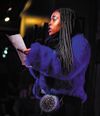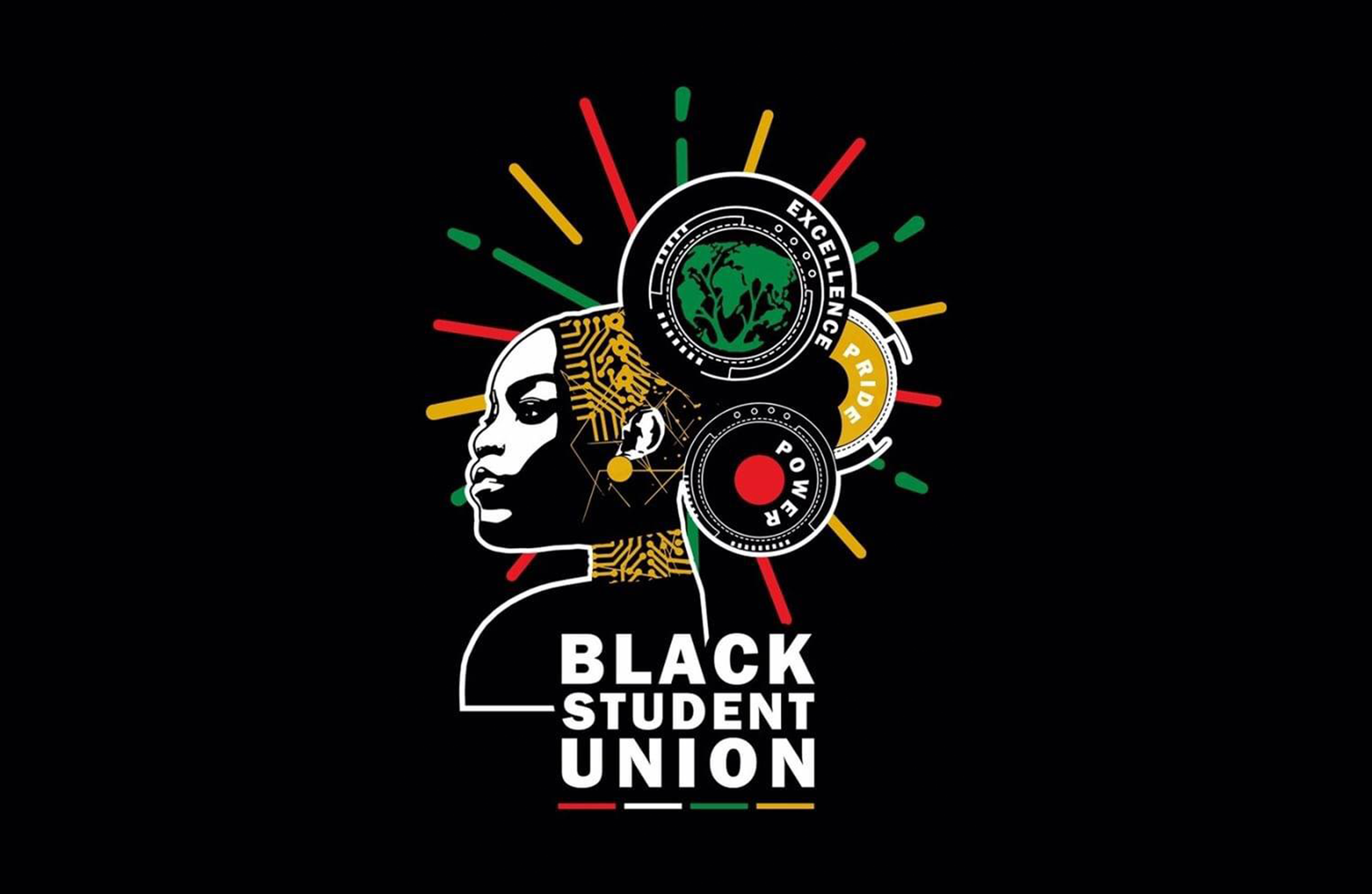BSU logo: Facebook: Brown University / Original Design By Alannah Vann, 2020. Graphic Color Edit by Tyler Sing.
Black Student Unions (BSUs) in Washington State would benefit from incorporating more ambiance, pageantry, and boldness into their programming. Their assemblies for Black History Month, Juneteenth, and MLK Day should feature a greater variety of content and activities.These Student Unions should also advocate for more diverse curriculum materials and library books that better reflect the African American experience, and request special events like dances and games that celebrate Black culture and heritage.
Additionally, BSUs need to take a more proactive, assertive stance when addressing issues of hair discrimination, dress codes, and other forms of racial insensitivity. Their meetings should be designed to be more engaging and impactful, with a focus on uplifting and recognizing the achievements of notable Black leaders and role models.
It is important for BSUs to collaborate with faculty to incorporate more diverse perspectives on African American history and culture into the classroom. They could also organize their own all-Black bands, choirs, and step teams to showcase the wealth of Black artistic talent and expression on campus. BSUs have an opportunity to infuse more vibrancy, visibility, and voice into their activities and advocacy efforts. A bolder, more multifaceted approach to their work on various campuses would make a meaningful difference for the Black students they represent.
Finally, BSUs should implement workshops to educate members on using inclusive language and terminology when interacting with other Black students. This should include learning about bias and systemic racism (inside and outside of school), privilege, and racial equity. They also need to be aware of microaggressions, culturally competent communication, the racial achievement gap, and other related topics. This will empower Black students to effectively advocate for education reform, criminal justice reform, equitable housing policies, and other important causes. Whenever possible, Black guest speakers should be brought in to facilitate these workshops.
The following are some examples of some of the assemblies, programming, and workshops that I think would really ramp up the efficacy of BSUs in Washington.
Assemblies
For Black History Month, organize a fashion show featuring figures like Katherine Johnson, Benjamin O. Davis, Sojourner Truth, Ida B. Wells, and Booker T. Washington.
Incorporate powerful songs into assemblies, such as “A Change is Gonna Come,” “We Shall Overcome,” “Alright,” “Fight the Power,” “Rise Up,” and “Glory.” Invite performers to sing songs like “Strange Fruit” or to read poems from Maya Angelou, Audre Lorde, and Amanda Gorman.
Perform dramatic reenactments of significant moments that highlight important people in Black history, such as George Floyd, Colin Kaepernick, Martin Luther King Jr, Maya Angelou, and James Baldwin. Show clips about the election of Barack Obama as the first Black president, and the iconic “That’s All” segment on the Ed Sullivan Show featuring Dorothy Dandridge.
On MLK Day, have a student read the “Letter from Birmingham Jail” and perform a reenactment of the Montgomery Bus Boycott.
For Juneteenth, gather in the gym to sing "Swing Low, Sweet Chariot" and "Lift Every Voice and Sing." Hire Black chefs to prepare soul food, and give the students plates of collard greens, yams, macaroni, banana pudding, peach cobbler, ribs, and cornbread.
Instruct students in the gym how to groove to the Cupid Shuffle, Electric Slide, Cha Cha Slide, K-Wang, Soulja Boy, Teach Me How to Dougie, Juju on That Beat, and Watch Me Whip and Nae Nae.
Issues of discrimination
I’ve written about discrimination in schools before, so I’ll just give a brief overview of how BSUs can support students. There must be consequences when students (or staff) engage in racist behavior.
If you see a fellow Black student rocking braids or their natural hair, give them a compliment! If someone asks to touch your hair, kindly decline. For any rude inquiries, simply respond, “I’d rather not answer that.”
It’s crucial to draw a firm line against the use of the N-word, even if it appears in literature. As a student, reject any form of racial humor from your peers! If this behavior persists, report it to the principal immediately and talk to the leaders of your BSU. Advocate for appropriate disciplinary actions such as suspension, expulsion, detention, or community service to address their misconduct. Offenders should also undergo training, write an essay, or compose a letter explaining why such behavior is unacceptable.
Encourage for teachers and other staff members to face consequences as well; if they engage in racist remarks or actions, they should be reported, whether through email, phone calls, or formal complaints. If a Black student confronts or fights a peer over racial issues, the white student should face equal repercussions. If you feel singled out by dress code enforcement, don’t hesitate to speak up!
Curriculum
Advocate for the school district to show films such as The Color Purple, Hidden Figures, and Beloved.
Suggest introducing literature like The Fire Next Time, The Souls of Black Folk, The Black Kings of Europe, The First Americans Were Africans, and African Myths and Folk Tales in the classroom.
Encourage teachers to emphasize Barack Obama’s presidency and not just Thomas Jefferson, James Madison, George Washington, and Abraham Lincoln. Advocate for more educational material about Black politicians and other Black leaders.
Urge educators to delve deeper into the history of the Ku Klux Klan. Rather than solely focusing on the negative aspects of the Black Panther Party, teach students about the social programs they implemented, such as free breakfasts, community healthcare, and education.
Promote a balanced discussion that includes not only Black riots but also white riots, such as the Charleston riot of 1919, the East St. Louis massacre, the Omaha race riot, and the 1967 Detroit riot.
The school library should have a dedicated space celebrating contemporary young Black authors throughout the year. Some examples of writers to feature include Nicola Yoon, Tracy Deonn, Kaylnn Bayron, Tiffany D. Jackson, Ryan Douglass, Jason Reynolds, and N.K. Jemisin.
Workshops for BSU members
As discussed above, BSUs can help their members by offering workshops. I’ve written some example topics that I think would be helpful to many students.
- Racial equity workshops that address root causes of systemic inequities
- Workshops about changing policies, practices, and cultural beliefs to ensure equal opportunity for all
- Workshops focused on using a healing approach to build respectful relationships across racial and ethnic lines
- Implicit bias training that helps students recognize and overcome ingrained prejudices, like discipline disparities and lower academic expectations
- How to recognize and respond to microaggressions, like stereotyping behavior and excessive surveillance
- Training to help students understanding of privilege outside of school
- An inclusive language workshop to teach BSU members what words and phrases are best to use when talking about race or other protected groups
- Culturally competent communication workshop, where students will learn about how to communicate effectively while avoiding missteps, like speaking for others, or thinking that they represent an entire community
- Systematic racism workshops: There are plenty of topics these can cover, like unequal pay, unequal funding of districts with majority people of color, police intervention, etc.
- Workshops about laws that have a huge effect on Black people: These can include the Civil Rights Act of 1964, the Voting Rights Act, the Fair Housing Act, the 13th, 14th, and 15th Amendments, "Stop and Frisk" laws, due process, and more
Connect with community leaders
By recounting their own experiences with racism, discrimination, and societal barriers, Black guest speakers can help students understand and process similar challenges they might face.
We have some wonderful community members in the area, and some great organizations, as well. I have a few suggestions:
Inatai Foundation, Isaac Butts, Erin Jones, Women of Wisdom, Running Waters, COCOA, Tri-Cities Diversity & Inclusion Council, Urban Poets Society, NAACP, Washington African American Chamber of Commerce, AACCES, Aubrieann Johnson, Ms. JuruDaWise, Miss Juneteenth Scholarship Program, and The Listeners Project.
BSUs should partner with other organizations whenever possible. This will also help students develop relationships with groups outside of their school that will hopefully continue on after graduation.
Anyla McDonald aspires to become a poet, short story writer, and essayist speaking about racism against Black people, current world problems, and hot topics. When she writes, she does it with purpose and passion. She feels destined to touch others with her words, and wants to be known as someone who takes a stand and impacts lives with her writing.
Anyla is a columnist for Tumbleweird and an intern at Taylored Living Magazine.


